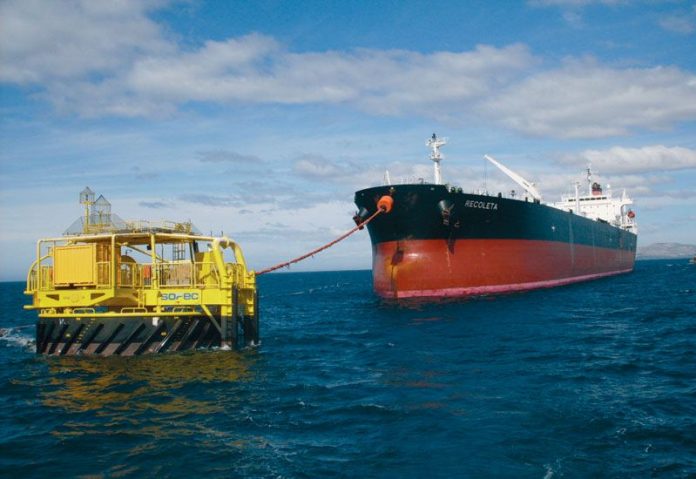KARACHI: Apart from reducing cost, Single Point Mooring (SPM) could be considered strategic assets during times of war, said Commander Kaleem Ishaq, who works for Byco Petroleum Pakistan Limited.
“God forbid, if war breaks out, SPMs could continue to function since the traditional seaports are the main targets of the enemy,” Kaleem, who looks after the security of the Byco refinery in Hub and the SPM facility near Charna Island, told a group of reporters, who were shown the facility.
“From fighter jets or warplanes, objects like this SPM are generally unidentifiable and remain off the radar of the enemy unless it has precisely been planned to attack the SPM,” he added.
Byco installed SPM facility at its refinery in 2012. It is still the only oil refinery, which has employed SPM in the process of procuring crude oil. It allows the company to import crude oil and refined petroleum products directly from the sea. Around 450 SPMs are functioning around the world with the first one dating back to 1958.
Byco’s SPM has a capacity to handle over 22 million metric tons per annum of POL products after Phase 2 expansion. Its daily capacity is 155,000 barrels. This has also made Byco the biggest refinery in Pakistan.
The location of the SPM also curtails the distance from the Middle Eastern Ports by 100 nautical miles per trip, leading to further savings of freight.
Byco is one of Pakistan’s leading energy firms. Formed in 1995 as Bosicor, Byco has rapidly proven itself as one of the major players in the energy sector.
One of Byco’s major strategic advantages, the SPM is the only floating liquid port in the country, allowing Byco to directly import both crude oil and refined petroleum products. At a time when the other two key ports in Karachi are facing extreme congestion due to increased port operations resulting in economic loss and higher financial costs, Byco’s SPM is a strategic advantage for Pakistan’s economy and serves as a National Asset.
The SPM allows much larger vessels to deliver oil and refined products, including supertankers, benefitting from its 25-meter depth.
This has enabled Byco to cater to the largest ever shipment of crude oil in 2017; a record 102,000 metric tons of crude was received through Byco’s SPM, making it the largest ever in the nation’s history. Byco’s SPM recently celebrated the import of 5,000,000 metric tons of crude oil.
In August of 2017, Byco has made its second oil refining complex operational, ORC-2, which is the single largest refinery in the country, with a production capacity of 120,000 barrels per day (bpd). In addition to Byco’s original oil refining complex, ORC-1, which was commissioned in 2004 with a refining capacity of 35,000 bpd, Byco’s oil refining capacity has now reached 155,000 bpd, which is unrivalled in Pakistan.
Engaged in the business of oil refining, petroleum marketing, and petroleum logistics, Byco has emerged as one of the leading firms in Pakistan’s petroleum industry. Byco produces a wide range of petroleum products.
Byco currently refines crude oil into various marketable components including Liquefied Petroleum Gas, Light and Heavy Naphtha, High Octane Blending Component, motor Gasoline, Kerosene, Jet Fuels, High-Speed Diesel, and Furnace Oil. The company has its own Oil Marketing Company with a nationwide network of retail petrol stations across all five provinces of Pakistan. Byco has recently also launched its Lubricants business.
At full capacity, Byco can manage 27 per cent of the national demand of Pakistan for petroleum products and nearly 39 per cent of the indigenous product demand.
Byco also has a fleet of Tankers and Bowzers to distribute its products nationwide. Byco supplies to all major OMCs including PSO, Hascol, Shell, Chevron and others.




